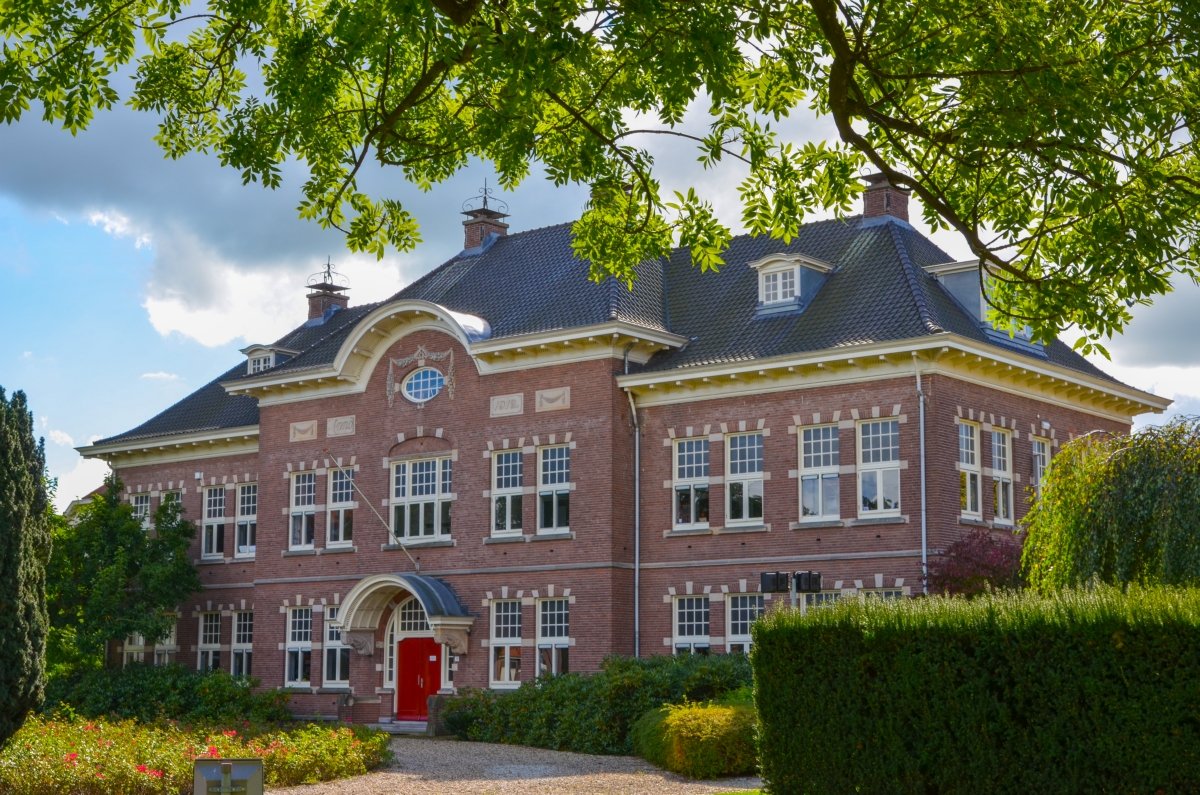
HOURS PER WEEK: 28 to 40FACULTY: Faculty of GeosciencesDEPARTMENT: GEO / Dept FGAPPLICATION DEADLINE: 15 September 2023
Job description
Are you interested in Nature-based Solutions and their application in deltas? The Department of Physical Geography, Utrecht University, is seeking an enthusiastic assistant professor to strengthen research and teaching on the emerging field of Nature based Solutions for dynamic delta challenges. This is a track to a permanent position and we specifically encourage early career academics to apply.
Deltas are formed where rivers meet the ocean and deposit sediments. Deltas are by nature low-lying, fragile, and sensitive geomorphic features, making them extremely vulnerable to degradation and transformation resulting from intensive human development, population growth and climate change. This puts deltas and their inhabitants in jeopardy in the near future, while planning, design and implementation of measures and policies can take decades. Nature-based Solutions (NbS) are increasingly becoming the standard for climate adaptation measures in deltas, aiming to enhance sedimentation, gain surface elevation, result in carbon sequestration, and increase water quality and biodiversity. To secure the future of deltas, it is critical that presently often localized NbS are scaled-up in size and number, without losing their grounding in local conditions and populations.
In this position, you have the opportunity to build your own rigorous and novel research line on the mechanisms (e.g., biomorphodynamic and subsurface processes), impacts and solution space of NbS at regional scale (i.e., sub-areas within a delta, such as a river, estuary, or beach-dune system) and delta scale under changing boundary conditions. Ideally, the research line is based on a combination of data, artificial intelligence, and numerical modelling. The recently granted Delta-Enigma data-infrastructure
for intensive observational and experimental bio-geomorphological research in the Dutch Delta, which will be set-up in the coming year, and the recently granted NL2120 programme
external link, funded by the Dutch National Growth Fund, offer unique opportunities for developing this research line. Your research will be incorporated in the departmental research lines on the (bio)geomorphological dynamics of rivers, estuaries and coasts, and you will collaborate with other departmental research groups, working on computational geography and remote-sensing techniques. You will also develop and be involved in funding applications for small to large scale team projects and personal grants. We have a strong support system to help you develop or improve the necessary skillset for successful proposal writing. We are redesigning our bachelor curriculum and will work with teacher teams on courses. You will be welcomed in a collaborative, social and dedicated team.
Your tasks:
- You will contribute to the supervision of early career scientists such as PhD candidates and postdocs.
- In education, you will inspire students and actively implement insights from your research line as materials, develop and teach lectures and course modules on delta system evolution, delta management, climate adaptation and/or Nature-based Solutions.
- You will participate in teacher teams in both our undergraduate (e.g., elementary Earth Surface Dynamics, BSc fieldwork, and/or supportive courses like Data analysis), our graduate programmes (e.g., Earth Surface and Water; Marine Sciences).
- You will connect to and build on our knowledge of the delta process, and develop large scale models for adaptation options under sea level rise.
The Department of Physical Geography expects all tenured academic staff to divide their time equally between Teaching and Research activities. We will help you initiate or intensify collaboration within the department, and with access to our research activities in deltas around the world. We look forward to working with you on our team.
Qualifications
We are looking for an enthusiastic new colleague who meets the following requirements:
- You have a PhD in physical geography, marine sciences, environmental sciences, civil or environmental engineering, spatial ecology or related fields.
- You have scientific knowledge in the field of Nature-based Solutions in delta regions, preferably with a focus on biomorphodynamic processes and/or strategies that enhance sedimentation.
- You are eager to setup a distinct research line on Nature-based Solutions for dynamic delta challenges.
- You are interested in developments in society that affect the chances of success of Nature-based Solutions.
- You are enthusiastic about academic teaching and enjoy guiding students in teaching activities, including fieldwork.
- You are willing to strive for successful funding applications, both individually and in teams.
- You are excited and supportive of teamwork to achieve successful and impactful research and education.
- You are proficient in English, both spoken and written.
- You are willing to acquire Dutch language skills. We offer free Dutch language courses.
Does this profile fit you? Are you convinced that you would be a good fit for this position? We look forward to your application!
Offer
We offer a position (0.8 – 1.0 FTE) as an Assistant Professor for a period of 18 months. After a positive evaluation, and upon mutual agreement, this can be turned into a permanent position. The gross salary – depending on previous qualifications and experience – ranges between €3,974 and €5,439 (scale 11 according to the Collective Labour Agreement Dutch Universities) per month for a full-time employment. Salaries are supplemented with a holiday bonus of 8% and a year-end bonus of 8.3% per year.
Our Faculty of Geosciences has an excellent merit-based career and promotion policy. We will support you in developing your academic career. Additionally, you will have access to equipment in our state of- the-art laboratory infrastructure, coaching for teaching and supervision, support of scientific research software engineers, and training and support regarding the acquisition of external funds.
In addition, Utrecht University offers excellent secondary conditions
, including an attractive retirement scheme, professional development
external link, (partly paid) parental leave, sports external link and flexible employment conditions (multiple choice model).
For more information, please visit working at Utrecht University
.
About the organisation
A better future for everyone. This ambition motivates our scientists in executing their leading research and inspiring teaching. At Utrecht University
, the various disciplines collaborate intensively towards major strategic themes
external link. Our focus is on Dynamics of Youth, Institutions for Open Societies, Life Sciences and Pathways to Sustainability. Sharing science, shaping tomorrow external link.
You can watch the Utrecht University Campus Tour
to get an impression of our university.
Utrecht University’s Faculty of Geosciences
studies the Earth: from the Earth’s core to its surface, including man’s spatial and material utilisation of the Earth – always with a focus on sustainability and innovation. With 3,400 students (BSc and MSc) and 720 staff, the Faculty is a strong and challenging organisation. The Faculty of Geosciences is organised in four Departments: Earth Sciences, Human Geography & Spatial Planning, Physical Geography, and Sustainable Development.
The Department of Physical Geography
is one of the largest of its kind in the world and has received multiple excellent evaluations over the last years. The department has a strong and unique profile in research on natural hazards, land surface processes and (bio)geomorphology, hydrology, mountain hydrology, coast and river processes, spatio-dynamic modelling, earth observation and image processing.
The Bachelor of Earth Science and the Master Earth Surface and Water have the broadest scope of all earth science programs in the Netherlands. The bachelor
is partly taught in English and the Master
external link is in English.
Additional information
For more information about this position, please contact Esther Stouthamer
(Professor in Delta Evolution and Subsurface Processes) at E.Stouthamer@uu.nl
external link or Laura Lentz external link (Department Manager) via l.c.g.lentz@uu.nl.
You can ask us about the possibilities of professional development, and moving to and living in Utrecht (housing, visa, schools, partner opportunities) as well.
We will organize an online Q&A session via MS Teams on Monday August 28, 2023 at 4 PM. If interested, please send an email to Sophie Ketting via s.j.ketting@uu.nl to receive the Teams link.
We look forward to meeting you!
Apply
Everyone deserves to feel at home at our university. We welcome employees with a wide variety of backgrounds and perspectives.
To apply, please use the ‘apply’ button. Include in your application:
- a motivation letter;
- your CV, including your teaching experience, a list of publications and (e-mail) addresses of two referees;
- a brief vision on/plans regarding your own research and teaching for the next 3 years (maximum of 3 A4’s).
The first round of interviews will be on September 28, 2023. The second interview round will be on October 12, 2023.
*Note to recruitment agencies: Please refrain from contacting us regarding this job posting.
The application deadline is 15 September 2023.





